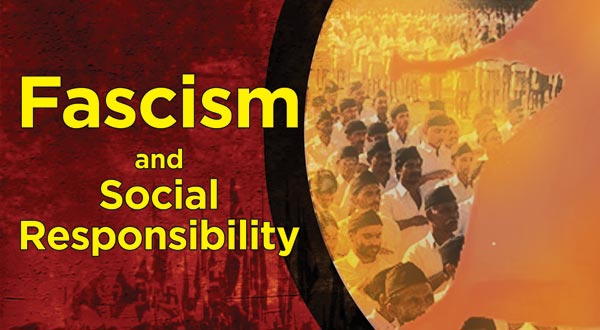মোস্তফা সরয়ার ফারুকীর দু'টি স্ট্যাটাস নিয়ে তোলপাড় চালছে। স্ট্যাটাস দু'টির একটিতে ফারুকী একতরফা ভারতীয় চলচ্চিত্র বাংলাদেশের সিনেমা হলগুলোতে প্রদর্শনের যৌক্তিকতা নিয়ে প্রশ্ন তোলেন।. . . ৪৩ বছর কেটে গেল। বাজার গেছে, আকাশ গেছে, পত্রিকার পাতাগুলো গেছে, চিন্তা গেছে, সিনেমা হলটা বাকি ছিল, এবার সেটাও যাচ্ছে।
অপর স্ট্যাটাস ট্রানজিট ও তিস্তার পানির হিস্যা বিষয়ে ভারতীয় কর্তৃপক্ষের কড়া সমালোচনা করেন মোস্তফা সরয়ার ফারুকী।
(Please click to read Amar Desh report 15 May 2014)
http://www.amardeshonline.com/pages/details/2014/05/15/244026#.U3PMhIFdXfI
The report is as follows:
ফেসবুকে ফারুকীর স্ট্যাটাসে তোলপাড় : 'যে দেশের মন্ত্রীর একমাত্র এজেন্ডা ভারতের ছবি আমদানি, সে দেশের ভবিষ্যত্ চরম উজ্জ্বল'

এতে তিনি লেখেন, 'কলকাতার পত্রিকার পাতায় আমরা এখনও মহকুমার চেয়েও ছোট। কিন্তু আমাদের পাতায় ওরা সুপার পাওয়ার। আমাদের টিভি ওখানে কৌশলে বন্ধ, আমাদের এখানে ওদের টিভি সানি লিওনের মতো খোলা। আরও একশ'টা ইন্ডিকেটর দেখানো যাবে যেটা আসলে বন্ধুত্বের কথা বলে না। বললে ভালো হতো। বোঝা গেছে জিনিসটা?'
এতে তিনি ভারত কি আদৌ আমাদের ছবি চালাতে আন্তরিক কিনা, তাদের দিক থেকে কোনো রকম আইওয়াশ বা শুভঙ্করের অংক আছে কিনা—এসব বিষয়ে খোলা মন নিয়ে কাজ করা দরকার বলেও মন্তব্য করেন।
অপর স্ট্যাটাস ট্রানজিট ও তিস্তার পানির হিস্যা বিষয়ে ভারতীয় কর্তৃপক্ষের কড়া সমালোচনা করেন মোস্তফা সরয়ার ফারুকী। এতে তিনি ভারতীয় ছবির আমদানির বিষয়ে সংশ্লিষ্ট মন্ত্রীর কড়া সমালোচনা করেন।
স্ট্যাটাসটি হুবহু তুলে ধরা হলো
'দাদাবাড়ির মাঝি নাদের আলী বলেছিলো ট্রানজিট দে, দেখিস একদিন তিস্তা দিয়ে দিবো। জঙ্গি হটা, বাণিজ্য ঘাটতি কমিয়ে দিবো।' দাদা সব নিয়ে নিয়েছে। দেয়নি কিছু, আমাদেরও দেখা হয়নি কিছুই, ৪৩ বছর কেটে গেল। বাজার গেছে, আকাশ গেছে, পত্রিকার পাতাগুলো গেছে, চিন্তা গেছে, সিনেমা হলটা বাকি ছিল, এবার সেটাও যাচ্ছে। যে দেশের মন্ত্রীর একমাত্র এজেন্ডা মনে হয় ভারতের ছবি আমদানি (তাও আবার ভারতের সবচেয়ে অখাদ্য ছবিগুলো), যে দেশের মন্ত্রী মনে করে বাংলাদেশের সিনেমার উন্নতির একমাত্র উপায় ভারতের ছবি আনা এবং আমাদের ডিস্ট্রিবিউশন নেটওয়ার্ক ভারতীয় কোনো সংস্থাকে দেয়া, সে দেশের ভবিষ্যত্ চরম উজ্জ্বল। এইরকম চিন্তাশীল মানুষ যদি দেশ চালায়, সে দেশের ভবিষ্যত্ উজ্জ্বল না হয়ে পারে না। আশা করি অন্যান্য দেশও (যাদের সিনেমার অবস্থা খারাপ) আমাদের দৃষ্টান্ত অনুসরণ করে চলচ্চিত্র বিপ্লব সাধন করবে।
বিঃদ্রঃ পাশে বসা ছোটো ভাই বললো, 'দুই দেশের ছবি না বিনিময় হওয়ার কথা'। আমি তাকে পুনরায় 'নাদের আলী'র কবিতা পড়তে বললাম
খুশি হয়ে ছোট্ট ভাই আমাকে 'জলবায়ু পরিবর্তন মোকাবেলায় জঙ্গি দমনের গুরুত্ব' বিষয়ে একটা বক্তৃতার রিপোর্ট ধরিয়ে দিয়ে বললো, 'দেশ চালাতে এইরকম প্রতিভাই আসলে দরকার!'
আমি বললাম 'এইরকম একটা মন্ত্রী তুই ফুসলিয়ে নরেন্দ্র মোদিকে দিয়ে দে। আমরা বেঁচে যাই!'
__._,_.___


















 Abu Bakar
Abu Bakar





